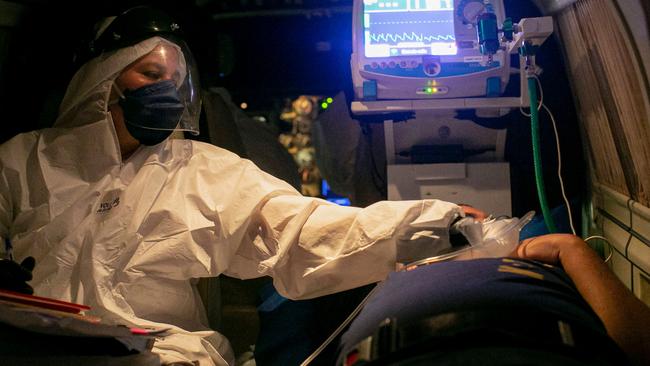High-risk factors in fatal COVID-19 cases identified
Cancer, chronic kidney disease, diabetes and hypertension are the four main comorbidities leading to death from COVID-19, a study has found.

Cancer, chronic kidney disease, diabetes and hypertension are the four main comorbidities leading to death from COVID-19, a study by scientists at Griffith University has found.
The researchers analysed four global databases from 14 countries that held records of 375,859 patients, identifying the most common comorbidities that were present in fatal COVID-19 cases.
Hypertension was the most common comorbidity, followed by obesity and diabetes. However, obesity was not associated with a higher risk of death from COVID-19.
In medicine, comorbidity is the presence of one or more additional conditions often co-occurring with a primary condition.
“Comorbidities are frequently cited as risk factors for severe COVID-19 outcomes (but) the degree to which specific comorbidities impact the disease is debatable,” said the study’s co-lead author, Adam Taylor.
“This is a global study covering all comorbidities reported to be involved in the exacerbation of COVID-19 leading to death.
“It allows us to identify specific comorbidities that have higher risk in patients and identify COVID-19 high-risk groups.”
The study’s authors have a working theory that the reason certain comorbidities lead to a higher risk of death from COVID-19 has to do with the way certain diseases or conditions affect the expression of a receptor known as ACE2, which the spike protein of the virus binds to in order to enter and infect cells.
Diabetics, for instance, often take medication to control blood glucose that increases ACE2 expression on the body’s cells.
Obese patients also have a higher expression of ACE2 receptors, due to having a large number of fat cells.
“Studies have shown that the treatments some patients receive have been shown to increase expression of the ACE2 receptor,” Dr Taylor said.
“And if you’re increasing the expression of the receptor, that gives the virus more things to hold on to, if you like, and the more chance for a cell to become infected.”
For some people, COVID-19 is not just a respiratory disease.
It can cause neurological symptoms, heart inflammation, and it can also infect the gut.
Patients with auto-immune diseases and cancer often have weaker immunological function from the use of immunosuppressive drugs, which may explain the increased risk of hospitalisation in these patients, the study found.




To join the conversation, please log in. Don't have an account? Register
Join the conversation, you are commenting as Logout